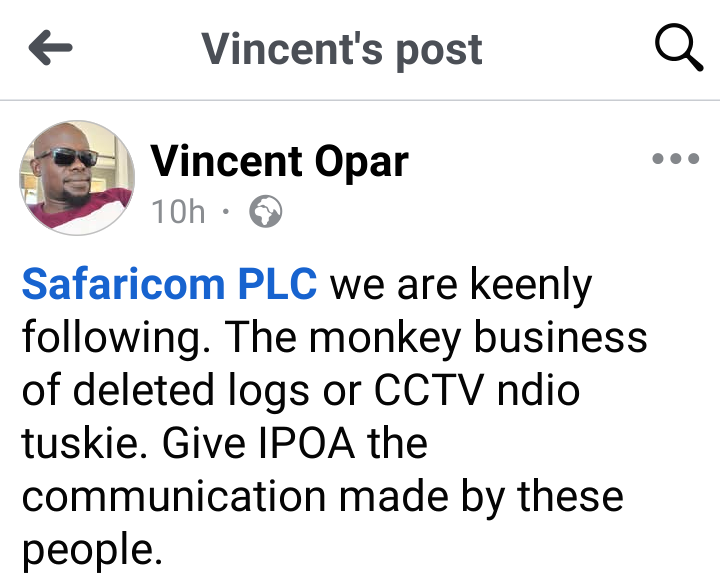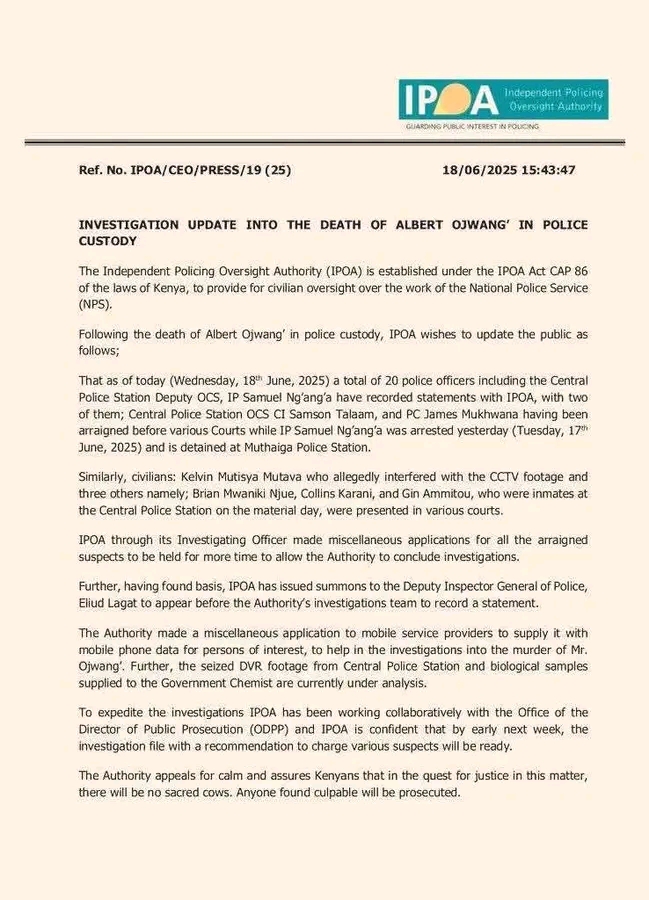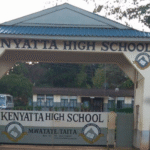Safaricom is now under intense scrutiny as pressure builds over its role in the ongoing investigation into the death of Albert Ojwang, a 31-year-old teacher and blogger who died in police custody after his arrest on June 6, 2025.
The Independent Policing Oversight Authority has already confirmed it reached out to mobile service providers for communication data that could help determine what happened before and after Ojwang was taken by police.
As the country’s biggest telecom company, Safaricom holds the most critical data, yet it has remained vague and evasive, issuing blanket denials instead of providing direct answers. What the public wants is not more statements but the full release of all communication logs related to this case, without edits, delays, or manipulation.
The public frustration is not new. Many Kenyans have watched in the past as institutions either withheld key information or distorted evidence to protect those in power.

That is why the anger directed at Safaricom is growing louder. People are not simply asking for transparency, they are warning the company not to interfere with the investigation. There is real fear that if not closely monitored, some of Ojwang’s communication records could go missing or be altered.
Safaricom has all the technical power needed to reveal the truth about who contacted whom, when, and from where. If the company fails to submit this data in full, it will be seen as protecting those behind Ojwang’s arrest and death.
IPOA has stated that 20 police officers and three civilians are under investigation, with one civilian accused of tampering with CCTV footage. That fact alone confirms that digital evidence is already being interfered with, which makes the role of Safaricom even more important.
If call records or GPS logs are missing or incomplete, the public will immediately suspect deliberate tampering, and Safaricom will be viewed not as a bystander but as part of the problem. This is not a time for corporate image control. It is a test of whether Safaricom stands for justice or for shielding state brutality.
What’s even more concerning is that there has been no confirmation that a lawful court warrant was obtained to access Ojwang’s data.
Kenyan law is clear any interception of personal communication must follow legal channels. Safaricom claims it had no contact with security agencies about the arrest and only learned about it through the media. But that doesn’t explain how authorities knew exactly where Ojwang was. Either the data was handed over behind closed doors, or someone accessed it illegally using Safaricom’s systems.

In both cases, Safaricom cannot simply walk away without offering full accountability.
Safaricom’s communication records could reveal critical details such as locations, calls, and links between suspects. If that data is not produced in full, the company will be seen as helping to cover up torture and murder. The public has had enough of vague responses and staged press releases. What they want now is direct cooperation with IPOA, without filtering, obstruction, or delay.
Every missing log or incomplete file will be interpreted as a deliberate attempt to protect the guilty.
This is no longer just about corporate responsibility. It is about whether a major telecom firm will help expose abuse or silently stand in its shadow. Safaricom must release all data, not selectively, not in bits, and not on its own terms.
Anything less will only confirm the worst fears that powerful institutions are still working together to hide the truth when ordinary citizens are killed.





















Add Comment